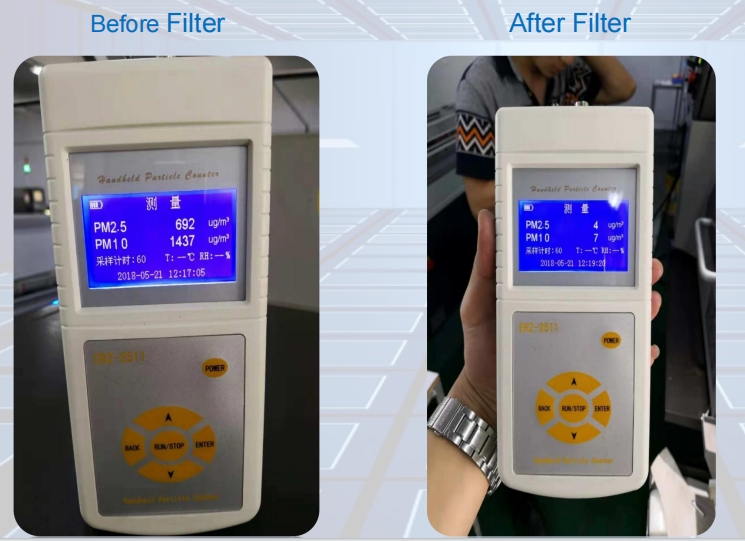In the CNC machining industry, PM2.5 (particulate matter with a diameter of 2.5 micrometers or smaller) is a significant concern due to the various processes that generate fine particles. These particles can have adverse effects on both worker health and the overall work environment.
PM2.5 Impact on Human Health
Particulate Matter (PM) refers to a mixture of solid particles and liquid droplets found in the air. PM2.5 specifically refers to fine inhalable particles, with diameters that are generally 2.5 micrometers and smaller. These fine particles are a significant concern for public health due to their ability to penetrate deep into the lungs and even enter the bloodstream.
Respiratory System
Irritation of Airways: PM2.5 can cause irritation and inflammation of the airways, leading to coughing, phlegm production, and shortness of breath.
Aggravation of Asthma: Exposure to PM2.5 can worsen asthma symptoms, causing more frequent and severe asthma attacks.
Development of Chronic Respiratory Diseases: Long-term exposure can lead to chronic bronchitis and chronic obstructive pulmonary disease (COPD).
Cardiovascular System
Heart Attacks: PM2.5 can contribute to the development of atherosclerosis (hardening of the arteries), increasing the risk of heart attacks.
Strokes: Exposure is associated with an increased risk of strokes due to the impact on blood flow and increased clot formation.
High Blood Pressure: PM2.5 can contribute to the development of hypertension (high blood pressure).
Other Health Impacts
Premature Death: Long-term exposure to high levels of PM2.5 is associated with increased mortality rates due to cardiovascular and respiratory diseases.
Developmental Issues: In children, exposure to PM2.5 can affect lung development and function, potentially leading to lifelong health issues.
Cancer: There is evidence linking PM2.5 exposure to an increased risk of lung cancer.
PM2.5 international standard:
The international standard index for PM2.5 is typically based on the Air Quality Index (AQI)system. According to the U.S. Environmental Protection Agency (EPA) standards, the PM2.5 concentration corresponds to the following AQl ranges:
0-12 micrograms per cubic meter: AQl 0-50, air quality is considered good, with minimal impacton public health.
12.1-35.4 micrograms per cubic meter: AQl 51-100, air quality is moderate, potentially affectingsensitive individuals slightly.
35.5-55.4 micrograms per cubic meter: AQl 101-150, air quality is unhealthy for sensitive groupswith potential health effects on sensitive individuals but generally not on the general population.
55.5-150.4 micrograms per cubic meter: AQl 151-200, air quality is unhealthy, potentially affectingthe health of the general population, with more severe impacts on sensitive individuals.
150.5-250.4 micrograms per cubic meter: AQl 201-300, air quality is very unhealthy, significantlyimpacting the health of the general population and causing severe health issues for sensitiveindividuals.
Above 250.5 micrograms per cubic meter: AQl 301 and above, air quality is hazardous, posingserious health risks to the general population and potentially causing severe health problems forall individuals.
Tinme oil mist collector machine adopt complies with international standard filter and provides 99.7% PM2.5 filtering efficiency. To provide employees with a better working environment.

After filtering by Tinme oil mist collector, the PM2.5 content in the filtered air is 4 μg/m3.
Tinme take care of people, environment, with amazing quality standard and competitive price, the complains is nearly 0% after installing more than 10,000 units. Welcome to inquiry us to have solution reference for your metalworking machines and provide employees with a better working environment.

